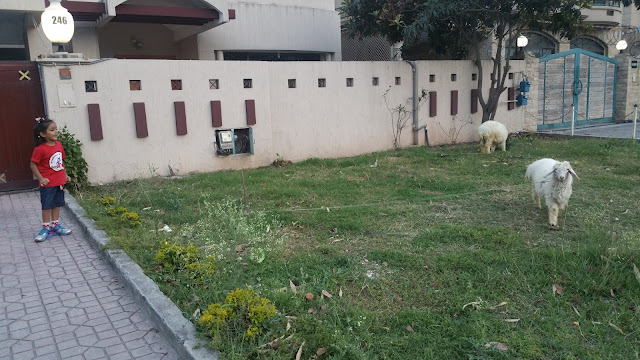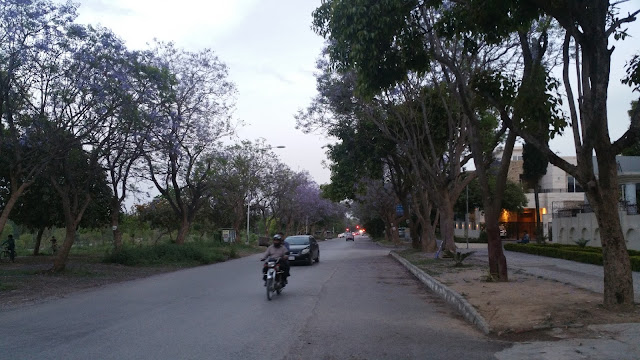Thursday, 26 April 2018
Sunday, 22 April 2018
Friday, 20 April 2018
An Unauthorised Review of Cake
Thanks to my father’s career in the Pakistan Foreign Service, I grew up with my siblings in various capitals abroad. I did not get schooled in the Pakistani education system. After I completed my undergraduate studies in the UK, I returned to Pakistan and worked for a couple of years before carting myself off to work with a United Nations Agency. I always feel like bit of a fake Pakistani but try to keep my connection to my country alive by watching Pakistani films and TV plays (more of the latter, which we grew up watching wherever we were on video cassettes) and listening to Pakistani music. Forgive me for the irrelevant introduction but at least I can lay claim to my background in case you don’t agree with my review of Cake.
I
always have had a sense that there is a desperate Pakistani effort to showcase
itself as hip and modern to a Western audience.
My father was not posted to a major Western capital but I remember
reading about some fashion show hosted by the Pakistan High Commission or
Pakistan Embassy in Europe or United States.
The presentation of designer outfits modeled by upper class models was
somehow meant to present a soft image of Pakistan. I feel Cake is trying to do
the same thing!
I am
currently visiting my parents in Islamabad where retired after a lengthy
service abroad since the early 2000s. I noticed billboards of the film Cake
and, a few trailers on TV with shots of reviews in foreign press. I live and
work in Liberia, West Africa.
I
noticed familiar faces of television actors. Towards the end of the trailer,
you will notice an apparent quote from The Guardian: “Quietly revolutionary.” I
also remember seeing a few short videos on my social media feed, which touted
“Cake” as a bold film that depicted Pakistani women as individual personalities
and not just in relation to their husbands or fathers. There was also a video
shared by Girls at Dhabas
with a interview of Cake’s stars who were politely saying they were feminists
but not the men-hating or bra-burning kind. What an unfortunate display of ignorance!
After
all this hype, it was imperative to watch the film and, see for myself what the
fuss was about.
I
was a little disappointed with the film because it did not really blow my mind.
Who is this film intended for? Which boats did it actually rock? What was so
revolutionary about it? It’s being touted as a ‘different’ film but I ‘m not
sure it has a mass appeal. In fact, the
film was embarrassingly elitist. Sure, there are many elements from the film
which I could draw parallels to my own life, the dysfunctional moments in a
family life and, so on, but I’m sure many others can too. But can be hailed as
a film speaking on behalf of strong Pakistani women? Sorry, no.
It
is a very intimate portrayal of a family with all its fractures, secrets and
regrets and is indeed an endearing family drama to watch. But ultimately, Cake is about a very wealthy
upper class family where all but one servant is given the spotlight to depict a
shocking romance with the eldest daughter. An eccentric matriarch hurls sweet
curses at her husband, joking about pinching his bum, and loves being made up
all the time with the aid of wigs and lipsticks. The daughters attend a private
boozing and club party (where do these types of parties take place?) and then,
drive around Karachi to release their frustrations, throwing eggs at the fenced
villas of their hated aunties and friends. Who can afford such luxurious revenge?
One of the daughters who returned from London attends an ultra elitist kid’s
birthday party and, then vaguely suffers at having to listen to other women’s
dialogues about how fulfilling motherhood is. Really? Are these the
revolutionary feminist moments in Pakistani film history?
Lo
and behold, this family turns out to be landlords with their own fiefdom in
rural Sindh. It’s there these two independent women politely don chadors on their heads when visiting
their family fields. But if you see the trailers, this moment is somehow
depicted as a bold moment! I had thought – while watching the trailer
absent-mindedly on mute – that these were politicians or social workers! No,
they are privileged brats of a filthy rich family. They can afford an army of nameless
servants for their luxurious villa in the city and, the whole village to wait
on them in their rural haveli. What
problems do these people have?
Pakistani
rich people problems. One of the daughters is grief-stricken that her
ex-boyfriend never acknowledged her letters but it turns out (spoiler alert!)
she killed a small boy in her village. This was unbeknownst to her and, her
family sent their Christian servant to serve in jail to hush up the matter.
This same Christian servant (aptly named Romeo) is unflinchingly faithful,
loyal and does not seem to hold a drop of anger towards the family. In fact, he
seems to enjoy being flung around by the elder daughter. There is something
unbelievably tone-deaf in this story.
I
did enjoy the depiction of characters on screen that smoke, curse, scream,
fight and cry. But, what is so bold about this? Is the pardah being lifted from elitist families? That they are, too,
dysfunctional and women can be ‘real.’ But was there a pardah to begin with? Who is the audience? Does the average
Pakistani relate to this family atmosphere?
The
climax, though, showcased the skill of the director and, it was extremely
tense. It was pulled off with perfection as the characters battled it out, the
deadly secret was revealed, some of the characters learned they were being
pricks, and at least one characters was laid to rest. The family crossfire was
extremely well done and, you almost felt you were there. There was one
particular moment where the camera diverted and, we went inside another room to
witness the dynamic between the visiting brother and wife. It happened as the
light had gone out and, then the camera followed him out to the continuing
scream match. It was masterfully done! The eldest daughter, played by Aaminah
Sheikh, heaves and puffs, self-righteously, explaining the whole fasad to her moronic younger clueless
sister.
Parents
do indeed suffer when their children are abroad. In a large family, one sibling
might stay back to look after the aging parents (and assets in the case of a
rich family). In dysfunctional families, parents harbour ill feelings towards
their own children for staying away and leaving the homeland. (But why did you
bring up your children to value the fast life elsewhere outside your country?)
I was having the same conversation with my dear Liberian friend whose son is in
the US. She was proud he was sending money back home and, wanted to build a
house back in Monrovia. She said, one goes abroad to develop economically but
to ultimately come back home. And sure enough, this is something I also think
about a lot – I spent most of my life away from Pakistan and, should I have
actually pursed a career back here?
Somehow,
this film does touch on poignant family themes. A serious drama or ‘damagedy’
follow basic formulas: awakening, reckoning, and/or revelation. But it explores
these at the expense of class. What are the aspirations of the servant class?
What are the aspirations of middle class Pakistani families? Do girls dream of
love, success and, what do they go through? Was this really explored in this
film?
I
left the cinema theatre with a mixed taste in my mouth, not fully satisfied
that this film was all that it is marketed to be. If this family is trying to
show the outside world that Pakistani women are strong and independent, then
this is not the one. And lastly, what was with the lame title of the film?
Oops sorry I put up the wrong film poster. This is Cake:
Oops sorry I put up the wrong film poster. This is Cake:
Thursday, 19 April 2018
Tuesday, 17 April 2018
Subscribe to:
Posts (Atom)
































































